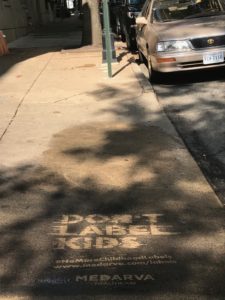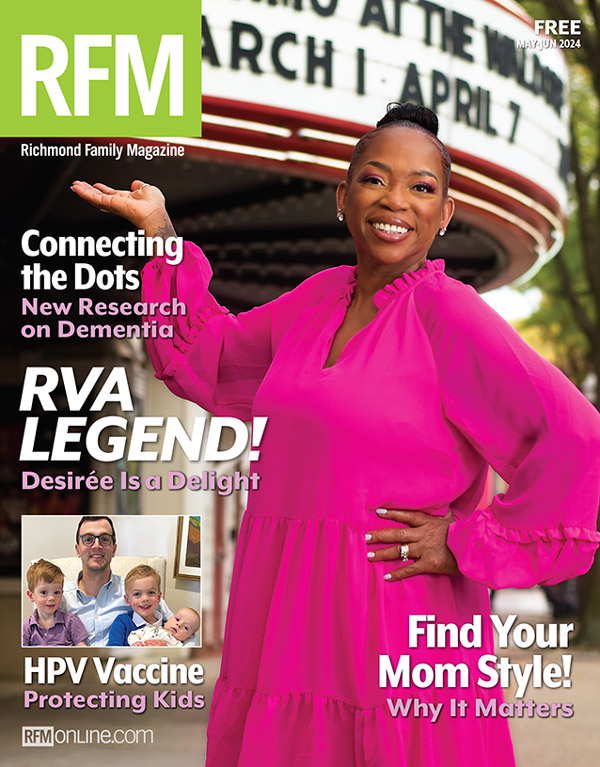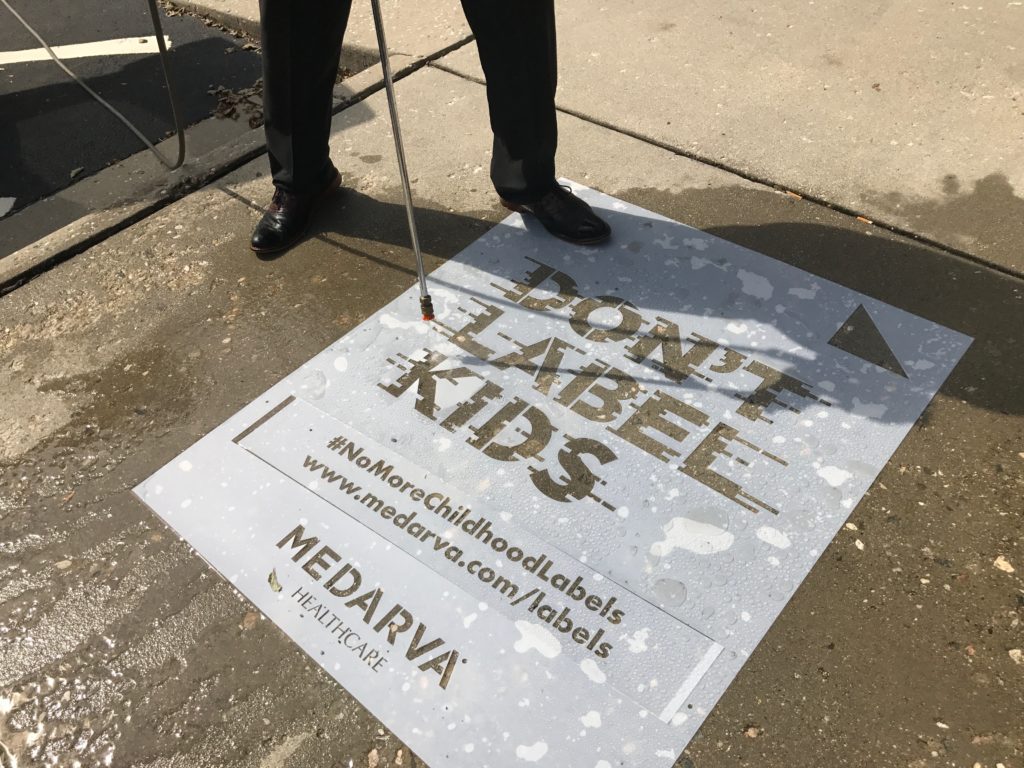Grassroots Tactics Promote Anti-Labelling Initiative for Kids’ Wellness
Richmond-based health care provider, MEDARVA Healthcare, is taking to the streets to promote its latest initiative – a program it calls “Don’t Let Anyone Label Your Child.” Through the use of a creative new tactic known as clean graffiti, the company has taken a pressure washer and stencil to various Richmond hotspots to tell a story about the impacts harmful labels can have on the city’s children and youth.
“No parent wants to hear their child called ‘slow,’ ‘distracted,’ ‘hyper,’ or even ‘spacey,’” said Bruce P. Kupper, president and CEO of MEDARVA. “This initiative is all about washing away those labels – and with the clean graffiti, we hope to do that quite literally.”
Instead of using spray paint and other environmentally-harmful chemicals, clean graffiti uses a stencil and pressure washer to wash away the dirt and grime on a sidewalk, road or wall to leave behind a clean, crisp and eco-friendly message on the pavement below.
“The clean graffiti is a fun, creative way to get people talking,” Kupper said. “By washing away the grime, we’re exposing what’s just beneath the surface, much like how our initiative helps to break through harmful labels to showcase the unique child that’s underneath.”
On a side note, children sometimes don’t get the proper medical tests needed to identify potential problems because of the fear that they will be labeled if problems are identified. It’s time labels are removed for the benefit of our children and their future success.
MEDARVA is working to identify vision
and hearing issues that might be the
root cause of kids’ behavioral challenges.
The Don’t Let Anyone Label Your Child program – which MEDARVA launched earlier this year – is aimed at finding the true issues behind a child’s distraction, hyperactivity or other learning issues. Through its Vision & Hearing Screening Program – which has screened 12,696 Richmond-area children since its unveiling in 2015 – MEDARVA has found that the underlying problems often lead back to a simple vision or hearing issue.
“Not many people realize the impact vision and hearing issues can have on a child’s learning abilities,” Kupper added. “We’ve found that the way a child learns is 80 percent visual and 75 percent auditory, and with one in four children suffering from an impairment significant enough to affect learning, the impact of our screening programs has been huge.”
 “If a child can’t see well, reading isn’t going to be very fun and the white board may be a large blur,” Kupper said. “A child who doesn’t seem to be paying attention, may not be able hear the teacher (or their mother) clearly. Some behaviors typically associated with ADHD, may in fact be sleep apnea, caused by enlarged tonsils and adenoids. But instead of finding the real reason, we tend to label the child – kids are at risk of lower school performance and less confidence both in and out of the classroom. We hope to change that by spreading awareness of the effects these hurtful labels can have on children by uncovering the real problems that cause them.”
“If a child can’t see well, reading isn’t going to be very fun and the white board may be a large blur,” Kupper said. “A child who doesn’t seem to be paying attention, may not be able hear the teacher (or their mother) clearly. Some behaviors typically associated with ADHD, may in fact be sleep apnea, caused by enlarged tonsils and adenoids. But instead of finding the real reason, we tend to label the child – kids are at risk of lower school performance and less confidence both in and out of the classroom. We hope to change that by spreading awareness of the effects these hurtful labels can have on children by uncovering the real problems that cause them.”
A preschool teacher in Henrico, said she has seen this impact in her students firsthand. “I really do see a difference in my students when they come to school with new glasses,” she noted. “It gives them a confidence boost and, often, it’s exactly what they need to want to try in class. They make academic, social and emotional strides and I know it’s not a coincidence.”
Kupper added that these sorts of results are what MEDARVA’s initiative is all about and that the clean graffiti campaign will help further the goal of spreading awareness so that even more students experience the same sort of life-changing results.
“Our main goal through this initiative is to spread awareness about the impact labels and other names can have on these children,” Kupper said. “When it boils down to it, we want to get people talking.”







